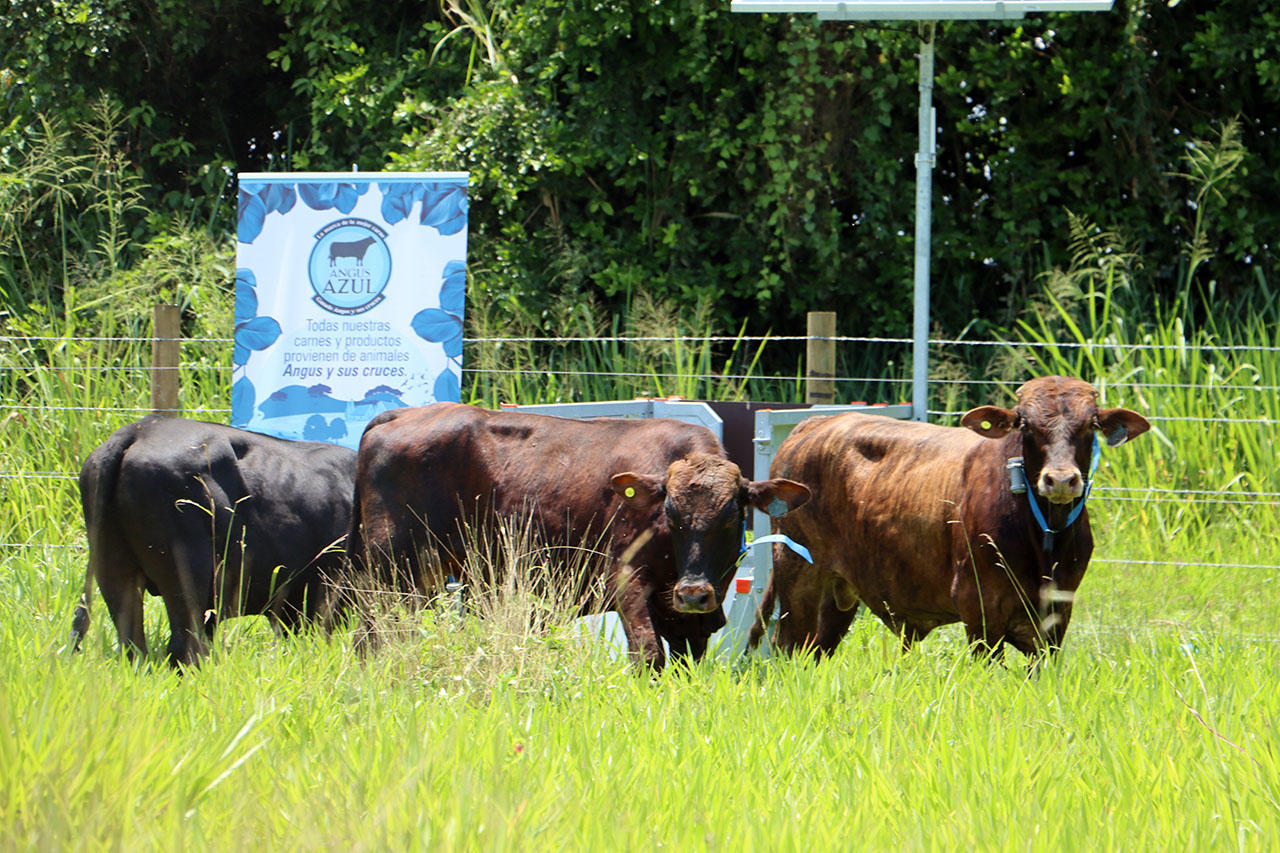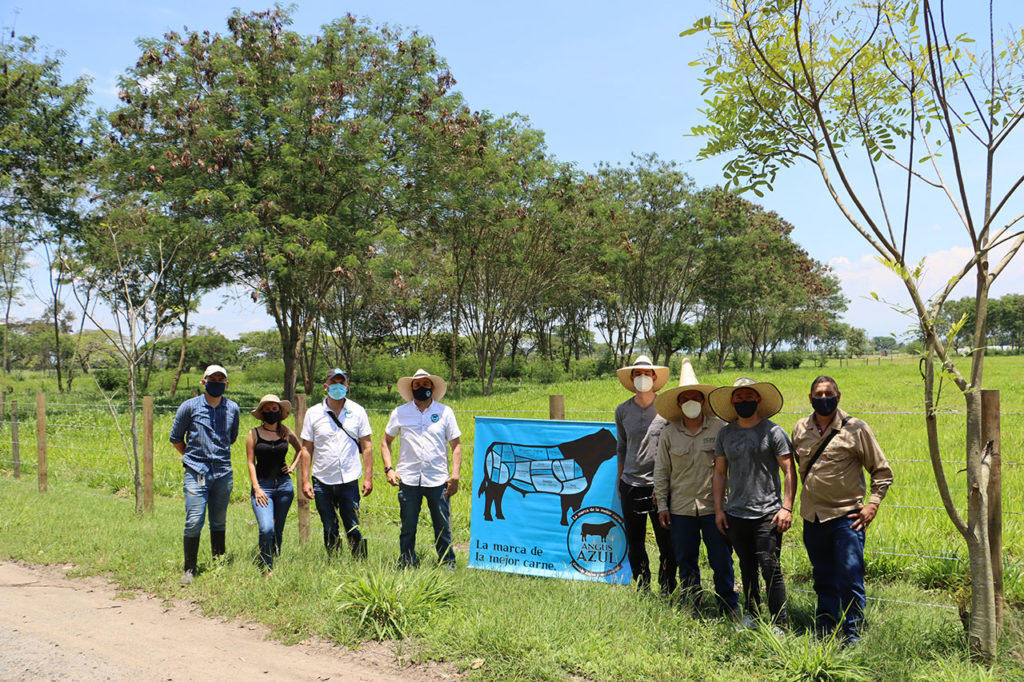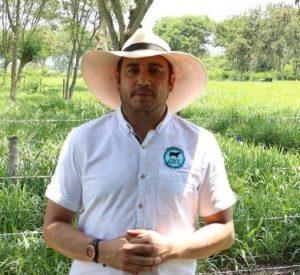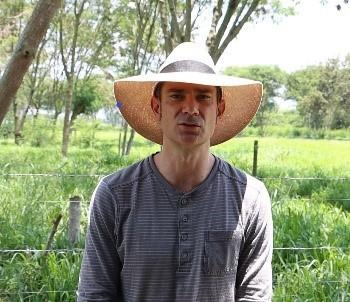Press and News Moving forward with sustainable forage-based livestock production systems in Colombia

Sustainability is a word that is used more and more often these days. Although the idea may seem just a current passing trend, it is in fact a pressing need in our lives, aimed at the rational use of non-renewable resources in all economic activity. So, instead of just talking about sustainability, we need to put it into action.
And that is precisely what we going to do at the Alliance of Bioversity International and the International Centre for Tropical Agriculture (CIAT) with the CoForLife project (part of the Tropical Forages Program belonging to the Alliance of Bioversity International and CIAT), together with key partners such as Asobrangus Comercial, the Center for Research on Sustainable Agricultural Production Systems (CIPAV) and the Universities of Glasgow (Scotland) and Aberystwyth (Wales).

As part of this project, 14 young bulls have arrived at our experimental campus in Palmira. These young animals will be fed with two different diets, a grass-only system and a silvopastoral system (grasses and legumes). For this project, we are committed to using state-of-the-art technology to evaluate productive, environmental and animal welfare parameters; a triad that describes what sustainability truly is.
In the productivity component, daily live weight gain will be measured for both diets as well as nutritional efficiency, meat yield and quality. Besides evaluating the influence of the diets on relevant productive parameters, the objective will be to identify the advantages of the Angus animal genetics and its crosses; a breed whose meat is recognized for its tenderness and quality.

We also want to identify the advantages of animal genetics associated with different diets, evaluating nutritional efficiency, daily weight gain, yield and meat quality,” explained Hernán Darío Gaviria, Chief Operating Officer at Asobrangus Comercial.
As for the environment, the project seeks to evaluate the way animals process different diets and the amount of greenhouse gas (GHG) emissions they generate from them. The results will not only show us whether one diet or the other is better for animal nutrition, but also, which one emits less enteric methane, the main and most polluting gas from bovine digestion.
We have equipment with the latest technology to measure enteric methane emissions, geo-referenced movements, and water consumption, among others. We hope to have very positive results that can contribute to the sustainability of livestock farming in Colombia,” said Jacobo Arango, Senior Scientist, Alliance of Bioversity International and CIAT.

One of the main innovations in this project is the use of Afimilk® collars, known as “the silent shepherd“. These are blue collars that are placed around the cattle’s necks to monitor body temperature, rumination time per day, and grazing time for each animal. The collars will also be equipped with a global positioning system (GPS) to better understand their movement habits and routes through the pastures. All this information is valuable for measuring animal welfare parameters, which also have an impact on productivity and GHG emissions.
Very positive results are expected to be obtained after eight months of work, which it is hoped will generate a big change in favor of sustainability.
Find out more:
Twitter thread:
Con la llegada hoy de 14🐮al campus de Palmira se utilizarán equipos de ganadería de precisión para evaluar el efecto de diferentes dietas forrajeras en las emisiones de CH4, eficiencia nutricional, rendimiento y calidad; con @AberUni, @UofGlasgow Angus Azul y CIPAV #CoForLife🌱 pic.twitter.com/lEuF5baiSv
— Alianza de Bioversity International y el CIAT (@BiovIntCIAT_esp) April 20, 2021
